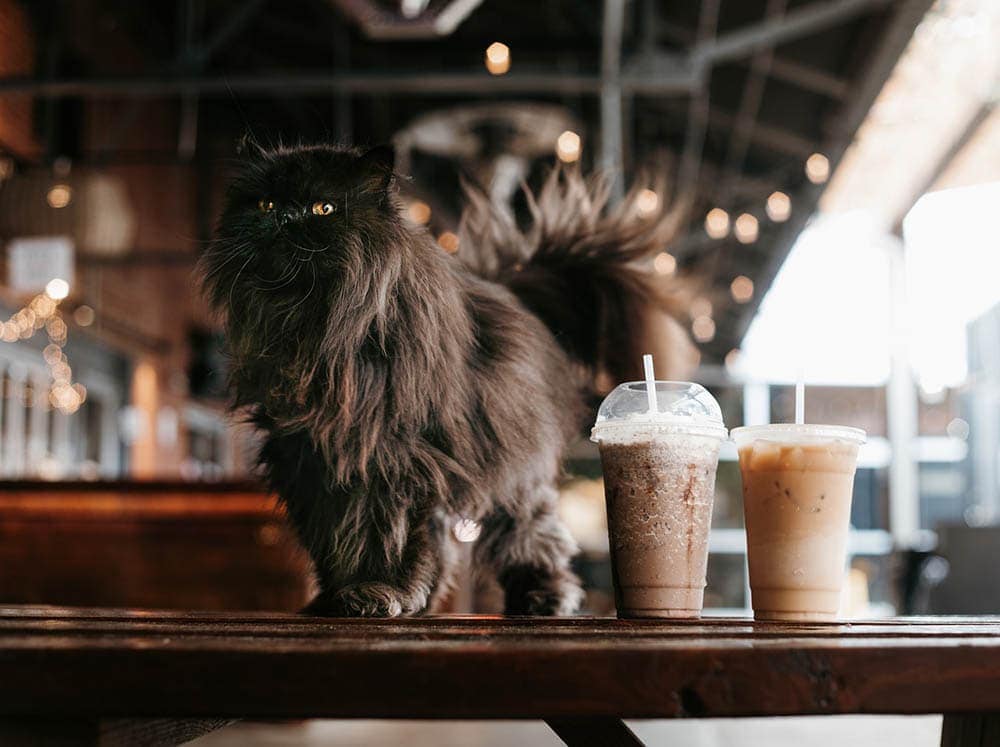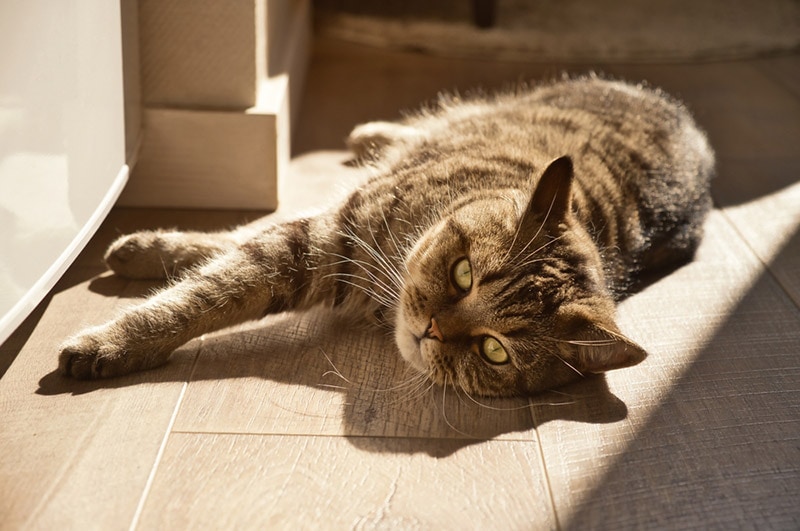How Does a Cat Grieve? Understanding Cat Emotions
Updated on
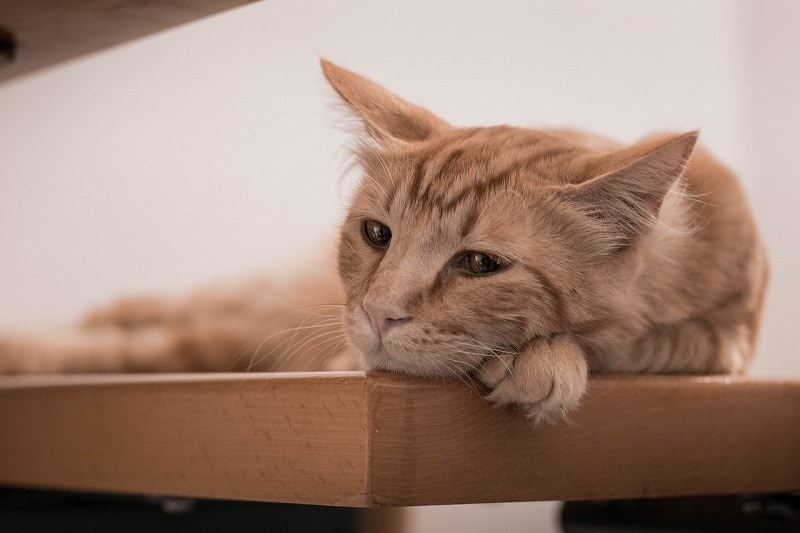
A scene of a dog lying next to their owner’s grave is heartbreaking. For most people, such a poignant sight is irrefutable proof that the dog misses their owner and mourns their loss. However, it’s more unusual to see a cat do the same thing. So, how do cats react when their human, feline, or other pet companion passes away?
According to several pet owner surveys, cats do exhibit behavioral and territorial changes after the loss of another companion, but whether they truly understand what “death” represents is unclear. However, there are indications that cats do react to the sudden absence of a loved one. Paying attention to these signs can be a good start in helping your feline cope with their loss.
Signs of Grief in Cats
When cats lose a companion, whether animal or human, they can change their behavior in several ways:
- They increase the frequency and volume of vocalizations.
- They may become depressed and apathetic.
- They may sleep more than usual.
- They may eat less and refuse to play.
- They demand more attention and affection or conversely, isolate themselves more.
- They seek out the favorite place of the deceased (a chair, bed, cushion, etc.).
- They may wander endlessly around the house or yard in search of their missing mate.
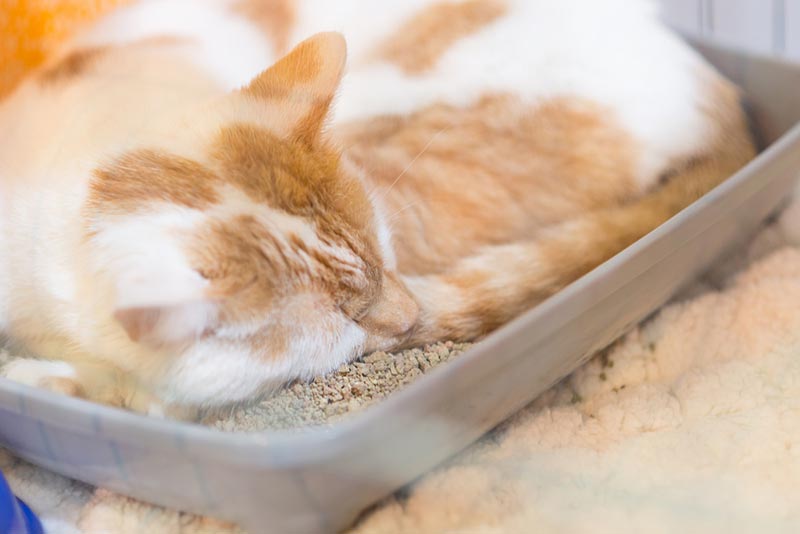
What Research Says About Grief in Cats
The loss of a pet is a painful experience for any owner. However, given the elusive and independent nature of cats, it’s harder to know how these animals might be affected by such a loss.
That said, a 1996 survey by the American Society for the Prevention of Cruelty to Animals (ASPCA) shed a bit of light on how cats can react when they lose a companion.1 The most common sign of grief reported by owners was a change in vocalizations (louder and more frequent meows). Other bereavement signs included loss of appetite, disruption of sleep patterns, and increased demand for affection and attention.
Furthermore, in 2016, the Royal Society for the Prevention of Cruelty to Animals (RSPCA) conducted surveys of pet owners to identify the most common signs of grief in cats and dogs.2 The results of these were much the same as those obtained by the ASPCA: Cats increased the frequency and volume of their vocalizations after the death of a companion, demanded more attention from their owners, and spent more time in the deceased’s favorite place in the house.
The findings from these investigations show that pet owners associate changes in their cat’s behavior with the same changes that grieving humans often exhibit, suggesting that the loss of a companion has a real impact on the surviving cat.
Are These Behavior Changes Really Related to Grief?
There is research that suggests that cats are incapable of experiencing emotions such as grief,3 as this would require a sense of self and a concept of the past, present, and future. So, if cats seem to mourn the disappearance of their animal or human companions, this behavior could be explained by the fact that they can still smell the odor left by their deceased companion but can’t find them anywhere in the house. This absence could confuse cats, but nothing more. They are simply reacting to the pain and distress of their owners.
As mentioned by VCA Animal Hospitals,4 other experts suggest that behavioral changes in cats after losing a companion are mainly due to sudden alterations in their daily routine. For example, their feeding and play schedules may have been disrupted following the death of a human or animal companion, so the cat might just be upset because their schedule is off.
How to Help Your Cat Through the Loss of a Companion
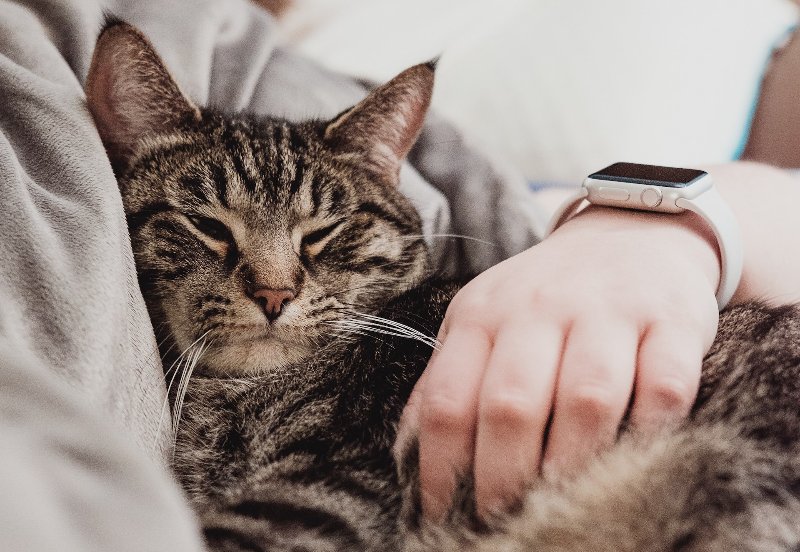
Ultimately, it’s impossible to demonstrate whether cats grasp the concept of death. Still, there is enough evidence to suggest that the loss of a companion does impact them.
- Be present and more affectionate: Spend more time with your feline, talk to them, and give them extra attention and love.
- Provide new mentally and physically stimulating toys. These can be cat trees or interactive toys that will distract your cat.
- Stick to a routine: Try to maintain a normal routine for feeding, playtime, and other activities to help your cat feel safe and less disoriented.
- Provide a safe space: Give your cat a quiet, comfortable space where they can retreat whenever they need it.
- Give your cat time to grieve: While you may be tempted to get a new pet to fill the void left by the loss of a companion, it can add more stress to your surviving cat. Be patient, and give your kitty the love and support that they need to get through this difficult time.
- Consult a veterinarian or animal behaviorist: If your cat is losing a large amount of weight, sleeping more than usual, or showing other signs of health issues, it may be worth talking to a professional for additional support.
- Take care of yourself too. If your cat is grieving, chances are that you’re also in mourning. Take the time to heal, and do not hesitate to seek professional help if needed.
How Long Will My Cat Grieve?
How long your cat may show signs of grief varies with each individual. According to the RSPCA survey, the average duration of reported behavioral changes in cats was less than 6 months.
However, if you are concerned about your cat’s physical or emotional state, consult your veterinarian to make sure they don’t have an underlying medical condition.
Final Thoughts
Overcoming the loss of a loved one, whether animal or human, can be a long and painful process. Our pets are not immune to the difficult emotions generated by grief, though they may have different ways of coping with it. In any case, do not minimize the impact that the loss of a companion can have on your feline. Like you, they will need time, support, and love to get through this time.
Featured Image Credit: avi_acl, Pixabay

